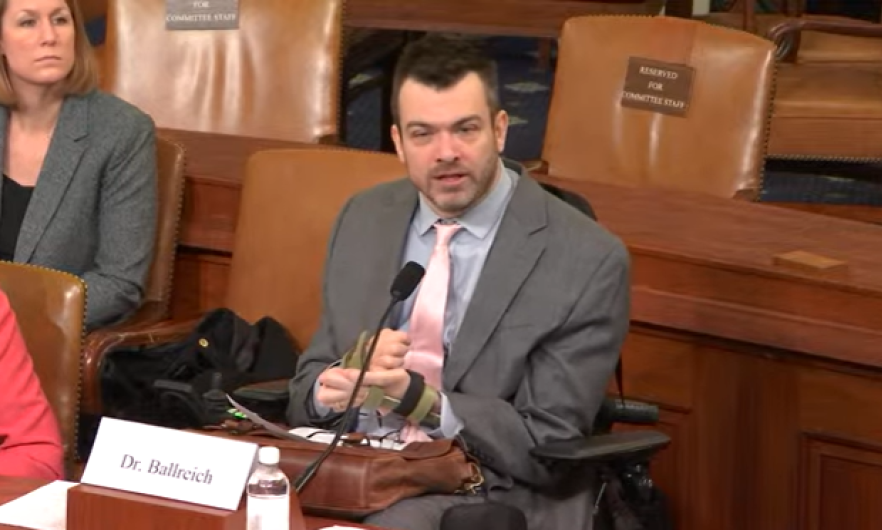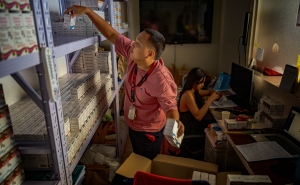HPM Faculty Member Jeromie Ballreich, PhD, MHS, testifies before House Ways and Means Committee

On Tuesday, February 6, Jeromie Ballreich, PhD, testified before the House Ways and Means Committee, addressing the critical issue of chronic drug shortages in the United States. He highlighted the complexity of factors contributing to shortages and proposed four policy solution sets for Congress to consider:
Improve Transparency of Drug Supply Chains: Ballreich recommended legislation mandating drug manufacturers to disclose information on key attributes of the drug supply chain, including manufacturing facilities and sources of raw materials. This transparency would help identify vulnerabilities and potential solutions.
Address Generic Market Resilience: Proposing demand-oriented policies, Ballreich suggested changes in how generic drugs are paid, incorporating incentives for manufacturers to invest in more resilient supply chains. This involves payment systems that consider long-term market commitments, supply chain resiliency grading, and higher payments for complex manufacturing in small markets.
Increase Supply Chain Resilience: Advocating for supply-oriented policies, Ballreich emphasized the need to incentivize domestic drug and ingredient manufacturing to reduce vulnerability to geopolitical risks. Policies could include subsidized loans, tax incentives, or higher payment rates for domestically produced drugs.
Ensure Continued Patient Access: Ballreich proposed the establishment of a supply safety net through either a national stockpile of essential drugs or raw materials, or by incentivizing hospitals and wholesalers to maintain buffer stocks. Financial incentives, such as grants or tax incentives, could encourage entities to increase their inventory of essential drugs beyond short-term demand needs.
Ballreich underscored the severity of drug shortages, impacting providers, payors, and patients, with causes ranging from disruptions in manufacturing due to external factors like natural disasters to quality issues within the manufacturing process. He concluded by emphasizing the immediate need for policies to enhance drug supply, improve transparency, and reform generic drug reimbursement to incentivize investment in supply chain resilience.





